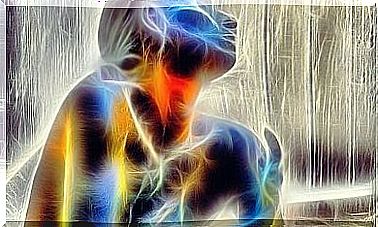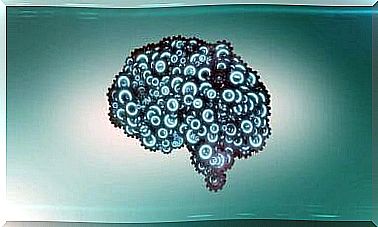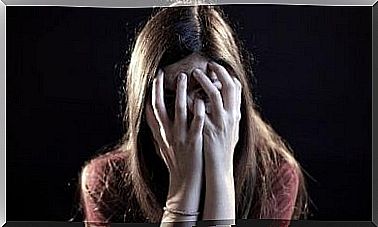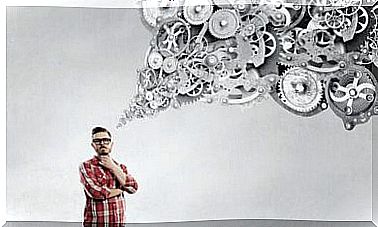The Tears I Didn’t Cry, The Sadness I Didn’t Recognize

Emotional containment is something we all experience more or less often. It is a consequence of our education. “Don’t cry, strong people never show their tears” ; this is what they teach us since we were children.
We often look for a lonely place to cry, where we can vent all our pain and find relief to move on. Letting off steam is healthy and necessary.
However, we cannot get rid of this emotional containment, either by the education received or by the personality itself. Failures and sadness are hidden behind a smile or other activities that do not allow us to hear our inner voice.
Emotional restraint is the opposite of emotional understanding. Someone who hides doesn’t understand the labyrinths of the emotional web that defines him as a person; admitting weaknesses also makes us stronger. It is knowledge in the face of denial and weakness.
Emotional containment is a step towards the abyss
Emotional containment literally means the act of containing or repressing your impulses, instincts, passions and feelings. It’s hiding something inside you, not only from the eyes of the world, but also from yourself. What is the reason? It is sometimes very difficult to understand, but psychologists speak of educational, social, psychological and even biological patterns.
The most useful and valuable knowledge we have is emotional knowledge. It helps us to understand, have closeness and empathy with others and with ourselves.

Why did we choose to hold back tears?
1- Defense mechanism
If I don’t react to your betrayal and choose to move on as quickly as possible, without stopping to think about what I feel, I avoid acknowledging that you hurt me and my pain will be less.
2- Self-protection strategy
If I hide my sadness and pain, I will avoid looking like a victim in the eyes of others. Showing my emotional pain is showing me vulnerable and losing control. Nobody likes to show their fragility.
3- Emotional ignorance
It may sound surprising, but there are people who have never been exposed to suffering, failure or disappointment. Take, for example, many of our young people who have been brought up in a culture where all their needs are met. This brings a low resistance to frustration. If tomorrow they experience emotional loss or failure, they will feel overwhelmed or simply “blocked” and will opt for emotional denial or containment.
Tears not cried today will be an unfathomable emptiness tomorrow. Unrecognized sorrows slowly lead us into the abyss, into which we end up falling in the form of illness or trauma.
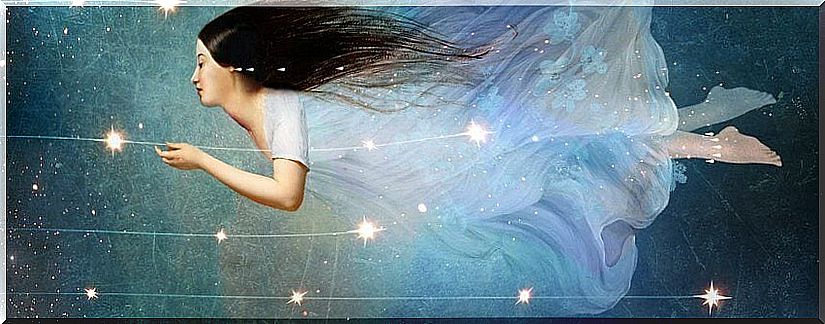
What is the best way to deal with pain and disappointment?
We must be aware that happiness does not come with a guaranteed duration. The acceptance of the present moment, with its imperfections and problems, is a way to live with greater integrity and emotional balance, where we accept the sadness as part of life and of our growth.
Many people have the ability to separate our inner reality from the outer reality. We let ourselves be carried away by daily activities, by work, by routine, without understanding that we are just a “piece of ourselves”.
What is the reason? We are disconnected from our emotions and from our interior, showing a false well-being. And when migraines, tiredness, neck and back pain arise, we are filled with painkillers, not realizing that they are just symptoms.
Symptoms of the unhappiness, the unwept tears, and the unrecognized sorrows that now make us prisoners.

Never put off for tomorrow the tears you can cry today. Vent your anger, cry your sorrows, analyze and accept your mistakes. Emotional understanding is a form of release that we must practice every day.
